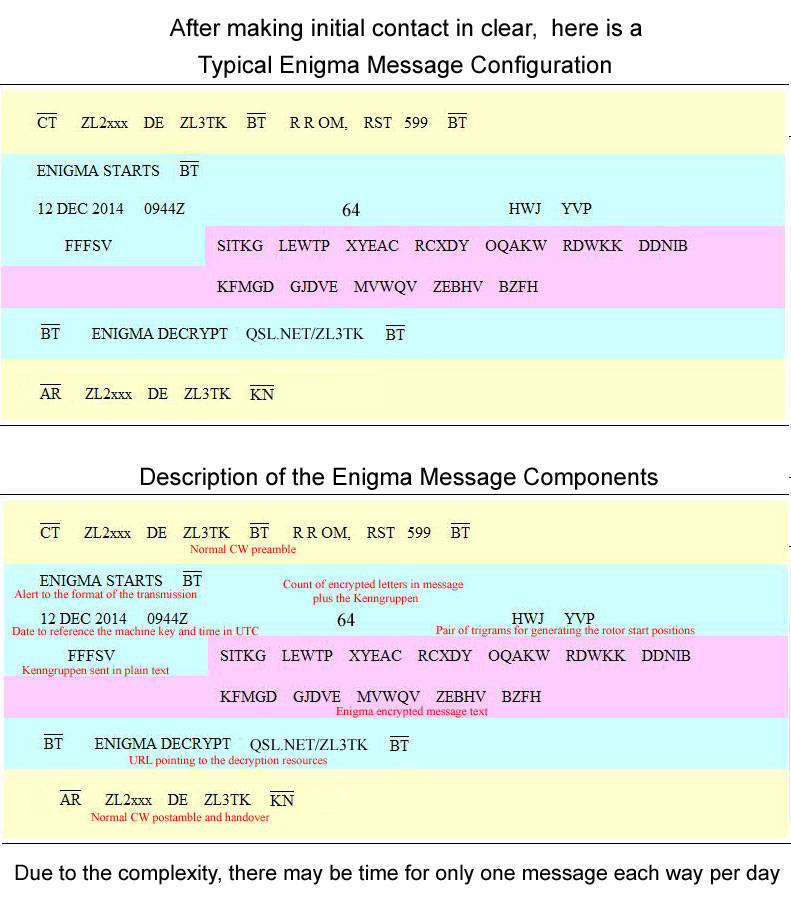|
|
Sample
Message | Home |
Principles |
Daily Keys
|
Key
page structure | Obsolete Sample message |
Regulations | |
||
|
Color Code |
Plain text - The preamble and postamble parts of a normal CW transmission. | ||
| Plain text - The preamble, kenngruppen and postamble parts of the Enigma message | |||
| Cypher text - The only encrypted part of the Enigma message | |||
|
Be advised this early format is shown
for information only.
|
|||
|
|
|||
|
|
|||
|
DEFINITIONS KEY
Key data for an Enigma machine is seen as columns of information
found on the daily key pages.
KENNGRUPPEN
The Kenngruppen is composed of a three-letter group plus two
randomly selected letters, e.g. the writer's initials.
The first three letters are used as a simple check that the correct
key is being referenced for the current message. There are four
Kenngruppen options per day which may be cycled in column order.
TRIGRAMS
When composing a message, the sender decides upon two random
trigrams, e.g. HWJ and YVP. After the rotors have been selected and installed with their rings set according the key, the machine cover is closed. The rotor start positions must then be set by rotating the rippled outer wheel of each rotor while viewing the rotor position through the small window, until the required letter of the first trigram, (in this example) H, W and J appears. The second trigram, YVP, is now typed on the keyboard and the result written down as each of three lamps sequentially illuminate, in this example it will be J, D and C. The second trigram also defines the the rotor start positions for encrypting the message proper. The third trigram is entered on the appropriate field of the Enigmagram. (The first five-letter group in the message text is the Kenngruppen and remains in clear, it is not to be encrypted.
|
|||
|
| Home |
Principles |
Daily Keys
|
Key
page structure | Sample message |
Regulations | |
|||
|
All Copyrights and Trademarks
remain the property of their respective owners. |
|
||

